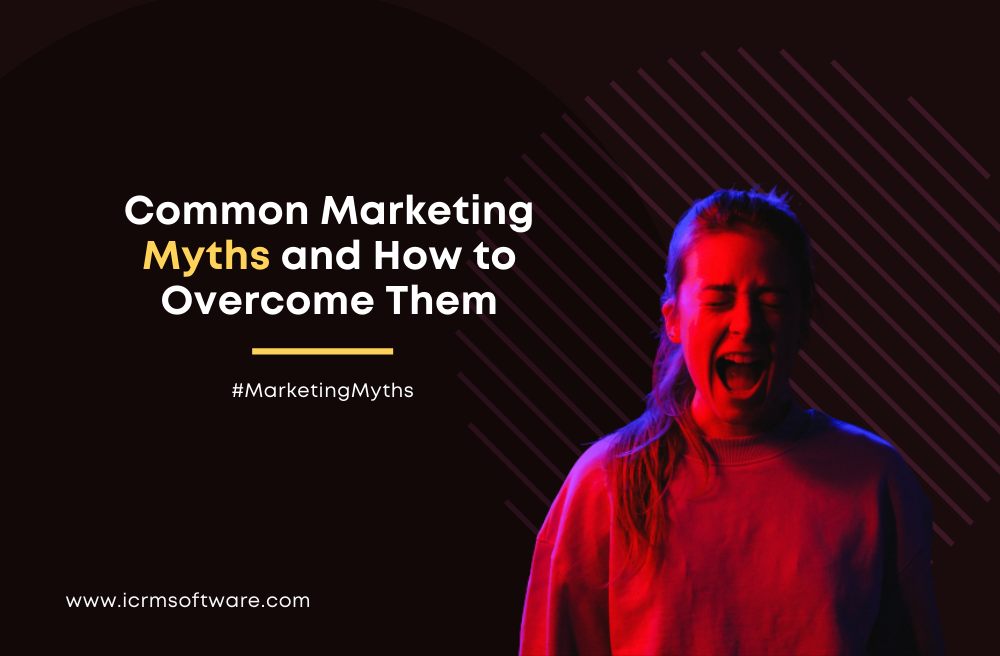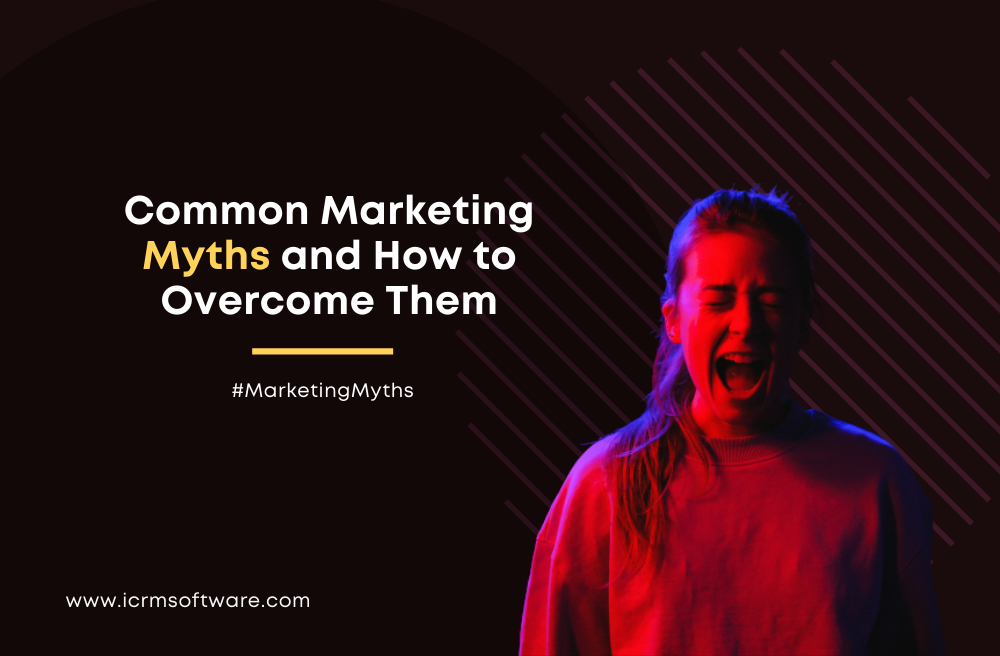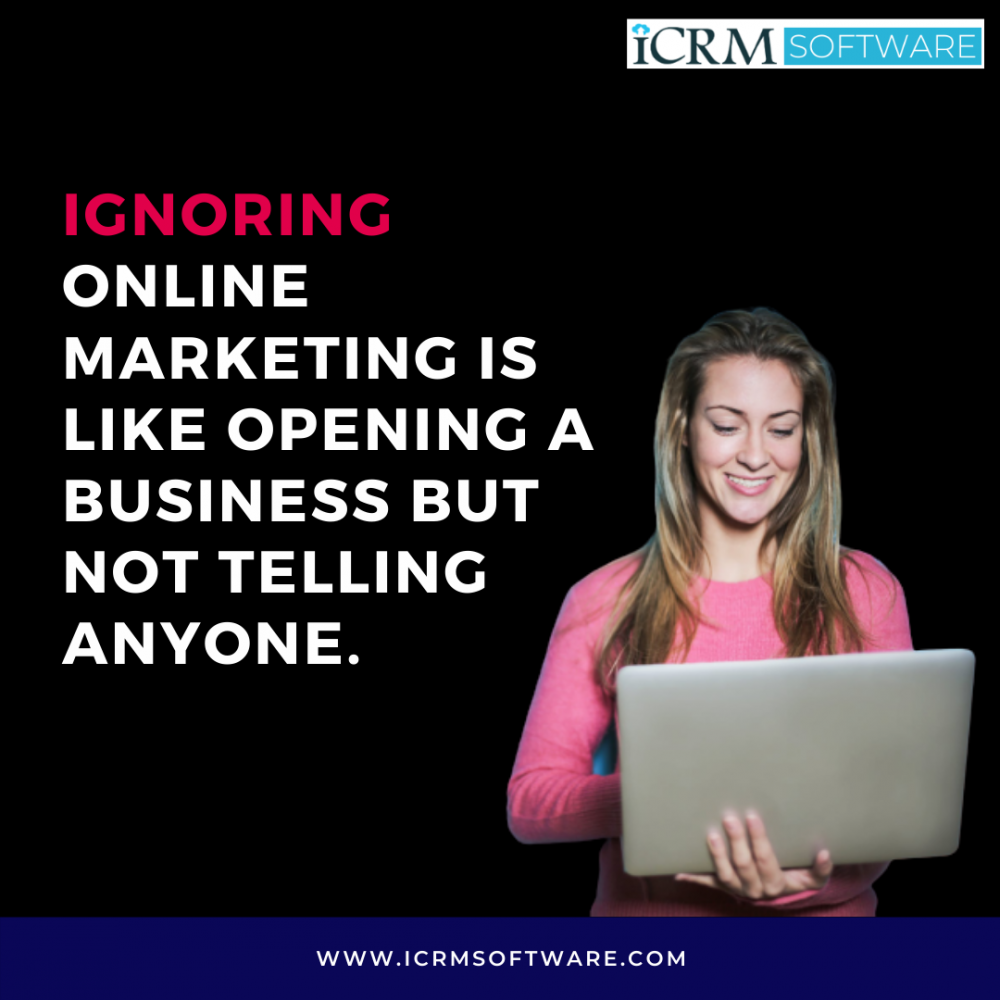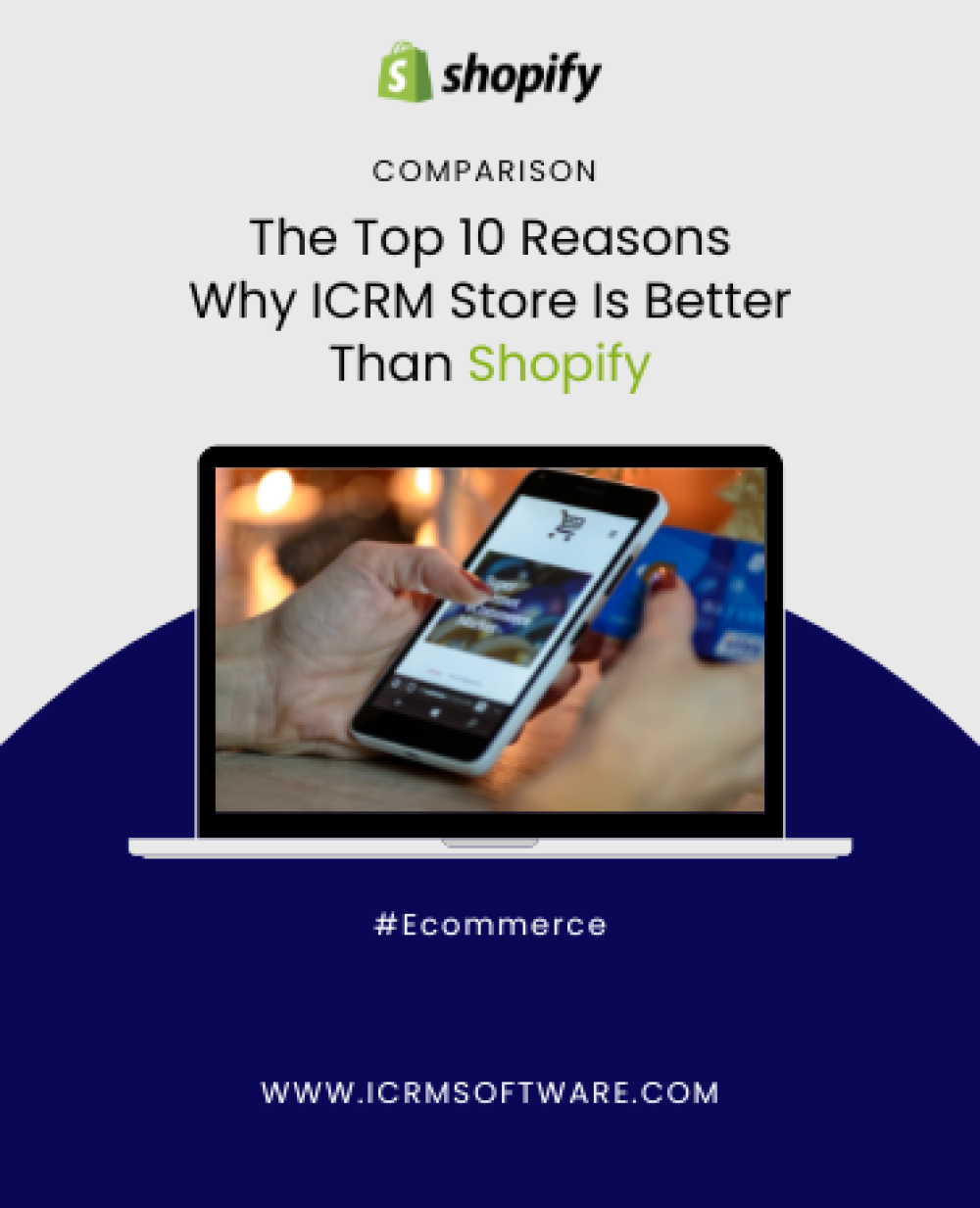Common Marketing Myths and How to Overcome Them

If you’re new to marketing, you might’ve heard a few of these thoughts floating around. Even though marketing strategies constantly evolve, these marketing myths consistently pop up as misconceptions and misunderstandings.
Want to make the most out of your marketing efforts? Keep an ear out for these eight common marketing myths and know how to bypass them:
Marketing Myth 1: “Marketing and advertising are the same thing.”
These two words can be tossed around synonymously, but marketing and advertising are very different.
Advertising is a company paying for space to promote a product or a service (or a cause, if you’re a nonprofit). The goal of advertising is reaching as many people as possible who are willing to pay for what a company sells.
Marketing involves a much broader picture of how customers connect to a brand. Sure, a marketing strategy can involve running several types of advertisements, but marketing looks beyond the success of an ad campaign and asks “How does this affect our customers in the long term? And how can we keep our customers coming back after this one-time ad?”
How to overcome the myth: Start with your goal in mind. If you’re looking to promote a sale, new product, or a single feature, you might be in the need of strategic advertising. If you want to get your brand off the ground, need to set up emails to reach out to your customers, or you want to build a relationship with your audience, you’re in the market for marketing services. The best part? The best agencies offer both advertising and marketing services — meaning you can keep costs down and your projects under one roof!
Marketing Myth 2: “We need to market to everyone because everyone is our customer.”
We believe your business is great, but what you offer won’t appeal to everyone. People who don’t want to have kids won’t shop at Baby Gap. If someone is severely allergic to dairy, they probably won’t buy your ice cream — no matter how delicious it is.
The most effective marketing not only knows who its target buyers are, but it knows how to relate to them. People want to connect to brands, feel understood by them, and know that they’re investing in more than a simple product. It’s the difference between marketing that screams “HEY, YOU” versus “Hey, I know you. Let’s talk.”
Establishing a target audience also helps save precious time, money, and energy as you invest more in the people most likely to buy from (and return to) your brand.
How to overcome the myth: Spend time researching your target audience. Dig deeper than the basic questions about age, race, and gender. Dive into psychographic information: what problems does my customer face? How do they relax? What are their goals?
If you’ve never conducted market research before, that’s okay! Some marketing agencies offer research and evaluation as part of their services list. Investing in accurately knowing who your audience is now can save you money in the long run.
Marketing Myth 3: “Results from marketing campaigns need to happen immediately to be successful.”
This myth constantly pops up. You see a successful competitor and immediately feel pressure to mirror their seemingly “overnight” success. You want to run a 30-day campaign and expect it to increase your sales by 200%.
The best things in life take time, and that’s especially true for effective marketing. While online marketing and “viral” social media posts can bring in quick results, they often don’t lead to reliable long-term growth. It often takes a few months to get an accurate picture of a paid campaign, and blogs can take over a year to start seeing an increase in traffic.
Take Nike, for example. The brand’s marketing has evolved to be incredibly powerful after investing years into different campaigns. They established a long-term strategy for their customers — a strategy so effective that most of its customers have been loyal to the brand for decades.

Image Credit: Nike
(Nike ad from 1990, targeting the running community with powerful messaging)

Image Credit: Mambo Zuri
(Nike ad from 2020, still targeting the running community with powerful messaging)
How to overcome the myth: Invest in marketing with the understanding that patience is a virtue — and a key to successful marketing. Look beyond quick wins of one-time sales or engagements and see what strategies keep your customers coming back to your brand. Measuring growth over a year rather than six weeks can paint a broader picture of what draws customers to your brand.
Marketing Myth 4: “Our content marketing can be whatever we want to write about.”
This myth can be a doozy, especially for brands that lack quality content creators or copywriters on their team. Content marketing encompasses more than a blog. It’s how your blog, video series, website copy, and social media all contribute to your brand’s marketing goals. Content marketing both nurtures relationships with potential customers and grows your SEO through strategically placed keywords.
It’s tempting to jump on trends to write about what everyone else is talking about. But if you’re an auto repair shop, a blog about the latest shoe craze would look out of place on your website. Creating content that’s irrelevant to your brand goals — no matter how trendy — confuses your audience, discredits established thought leadership, and can thwart your established SEO.
How to overcome the myth: Take some time to layout your areas of expertise. Where can you be a voice for your audience? What questions can you answer for them that no one else can?
What search terms are people looking for that bring them to your website and business? Take the answers to those questions and stick to those subject areas. And if you get stuck, reach out to a content marketing strategist! Partnering with an experienced content team helps protect your SEO work while giving you quality content assets that support your brand.
Marketing Myth 5: “Social media strategies aren’t important. The interns can handle it all!”
We’re not sure where the assumption that all corporate social media accounts are run by the intern comes from. Maybe it’s because millennials were young when social media marketing boomed in the early 2010s, or maybe it’s because there’s a lingering misconception that social media marketing does little for a brand’s image.
We have to say this is one of the hardest marketing myths to break, but it’s critical to break it. First, your interns deserve more out of their time with your company than retweeting accounts and making memes all day. Second, social media in inexperienced hands can be a recipe for a larger PR fire. Third, social media has nuance and layers that still confound the most adept marketers (and yes, even millennials). Treating social media as an afterthought can put your overall marketing strategy at a disservice to your brand and your customers.
How to overcome the myth: See social media for what it is: a powerful tool to connect with your audience directly. One of the best ways to improve your social media is by including it within a larger content marketing strategy.
Marketing Myth 6: “Having a popular social media account means I won’t need a website.”
On the opposite end of the social media marketing spectrum, we have the myth that all you need for online success is social media. This myth might’ve sprung up more recently thanks to the rise of influencer culture and fast-turnaround brands like Fabletics that exclusively market on social media.
Marketing on social media can be a great way to see faster results and build brand awareness, but the ultimate goal of that is to get users off Instagram/Facebook/LinkedIn and onto your website. Websites also provide powerful SEO tools that social media lacks, like geo-targeting in search and resources like Google My Business.
Additionally, investing in a website provides digital stability in a world where social media algorithms rapidly change. What works on Facebook one month might be completely different six months from now. Having a business website gives you a place to control your messaging and your marketing — and not be at the mercy of an algorithm update.
How to overcome the myth: With popular drag-and-drop builders like Wix, Squarespace, and WordPress, most businesses can get online in a matter of minutes. However, before you start adding unnecessary plugins and confusing navigation, reach out to a professional web designer. Not all websites are created equal, and it’s important to build the right website for your business goals.
Marketing Myth 7: “Everything is digital, so online marketing is all I need to be successful.”
Sure, digital marketing dominates most discussions around marketing campaigns. And if your target audience is a bit younger or you sell an online service or product, online marketing might give you high returns. But never underestimate the power of a well-placed brochure, radio ad, booklet or outdoor advertisement. Traditional media marketing can provide impressive returns, especially if it’s a creative way to get someone’s attention outside of a screen.
How to overcome the myth: Great marketing plans incorporate online and offline marketing to reach a target audience. This can be everything from effective package design to clever billboards. Traditional marketing efforts should, at the very least, support your brand and give people more memorable connections to your company than if they scrolled past an online ad.
Marketing Myth 8: “Marketing plans take too much time and effort for them to be useful.”
Your product could be revolutionary, innovative, awe-inspiring, groundbreaking, cutting-edge, disruptive or any number of jazzy adjectives. But at the end of the day, your products and services won’t magically sell themselves.
Marketing plans help outline the tools, tactics, goals, and budget you have at your disposal to achieve consistent sales goals. Having that accountability means your team is less inclined to impulsively react to certain marketing trends and more likely to develop a well-rounded brand that connects with customers.
How to overcome the myth: There are plenty of online resources to help you build out the marketing basics. If you need the bare bones of marketing, check out places like Hubspot. And if you’re still wondering “Is that everything? Did I get it all?”, let’s talk! At ICRM Software, we’ve helped B2B and B2C clients across the country ranging in industries from theme parks to makeup lines to financial services. From social media outreach to paid messaging campaigns to complete website overhauls, ICRM's experienced marketing and development teams have the skills to help your organization. We want to learn about your business, empower your marketing team and be your creative resource. Your marketing goals are worth a conversation: contact us at +91 866-882-4082 or info@icrmsoftware.com.













